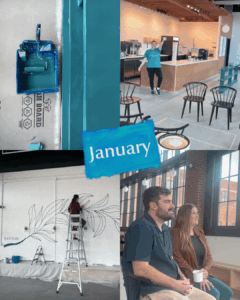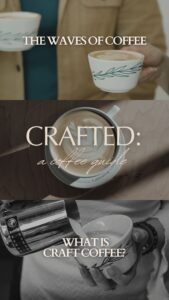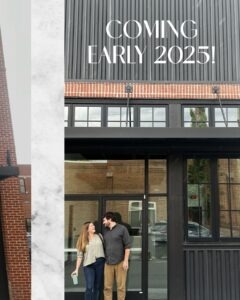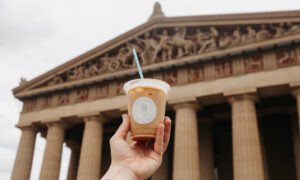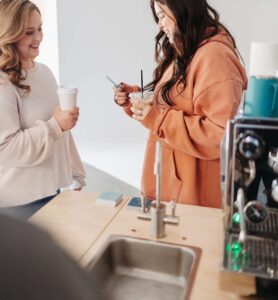Asulon Collective featuring Ryan Chipman with Yepocapa Coffee.
Welcome back to part two of the interview series with co-founder, Ryan Chipman of Yepocapa Coffee. Make yourself a pour over at home (like Ryan referenced last week) or head into your favorite local coffee shop to support them while diving deep into this valuable content:
How have you personally experienced refuge throughout your lifetime? How did that experience shape you into who you are now?
“I came to Guatemala as a vagabond to be honest. I felt called to come to Guatemala, but other than the desire to love people, I really didn’t have any clear vision or direction. That all changed when I met Carlos Tax, his now wife Tiffany, and his brother Abdiel! As I learned about their involvement in Colegio Berea and the school’s vision for education in Yepocapa, my heart began to burn and I wanted to be a part of it.
The Tax family ended up taking me in even though I had no money for food and housing realistically. I experienced an acceptance more than I had ever felt before, which really blew me away. Coming out of low self-esteem thought patterns, the Tax family really saw something special within me that I didn’t yet see in myself. If it weren’t for those 6 months living with their family, I would have never learned Spanish, come to know Colegio Berea, and Yepocapa Coffee wouldn’t exist. Even more than that, I would have never known the depths of how loved I am.
A place of refuge creates an amazing place that fosters personal growth. Overcoming my insecurities opened my eyes to the fact that we’re made to make a positive impact on this world and that we can overcome insurmountable odds.
Ryan Chipman – Co-Founder of Yepocapa Coffee
It’s crazy to look back now and the Tax Family even jokes about it today. Why in the world did they let some random stranger live with them? They’re still not sure why but I’m certainly thankful they did!”
I want to dive into a few different practices Yepocapa Coffee is committed to: relationship, cupping classes, incentives, transparent pricing, and reinvestment (mentioned above.) I love how you all say these practices “offer opportunities for growth, and open a pathway to sustainability and success through sourcing better, tastier coffee.” What moves you so deeply to remain invested in the coffee farmers growing capacity? How does vision play a role in this?
“These questions are bombs! When thinking about sourcing practices, it could be really easy for us to travel around Guatemala, find the best coffees, and simply buy those for our roasters. Although there’s nothing wrong with this style of sourcing, it misses the gems hidden away in the mountainsides. It misses communities with potential that just need investment. It misses more genuine and meaningful relationships and more importantly, it misses people as it mistakenly places a higher value on quality before people.
The fun part though is that as you invest in people, quality really does come second so it’s not a mutually exclusive sort of scenario. Our first year working with La Cooperativa San Pedrana, their coffee sucked. Sounds a bit harsh, but I think that’s a true statement sadly, lol. At the same time, we saw farmers awestruck by the potential to build relationships with roasters and were willing to make changes. We could have easily left and found better coffee elsewhere, but then we’d certainly miss the now 6 year relationship and the now 84-87 point coffees that are coming out of La San Pedrana.
Now that these farmers are obtaining sustainable price points, it enables them to farm their parcels differently. Instead of cost-conscious farming where cutting costs produces diseased plants, farmers get to invest into the health of their plants, which not only produces quality coffee, but more disease resistant plants. With better quality, profitable price points, and stabilizing production volumes, this is when we get to start talking about real sustainability!”
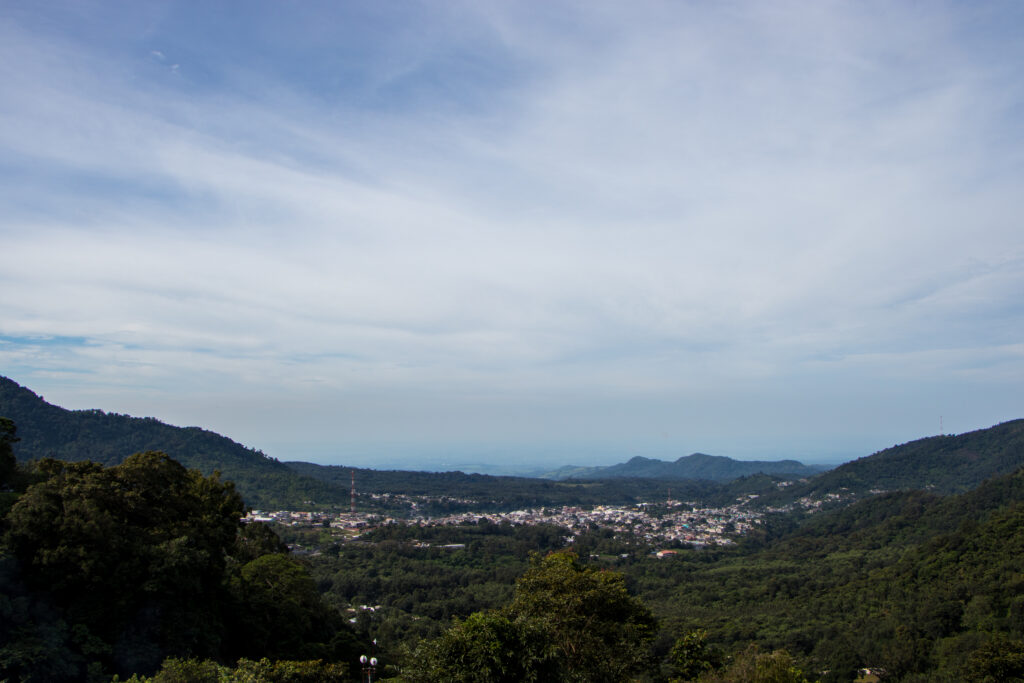
You talk about mutually beneficial relationships where the other’s needs are in mind. You all say, “When farmers meet roasters and are enabled to create relationships, it gives context to why their quality matters.” The coffee cupping classes bring together the coffee farmers and roasters to both enjoy and evaluate their work. Can you explain how valuable this time is together? Would you have a favorite memory of a particular meeting or experience to share more on empowering and fostering these relationships?
“For years and years and years, the only picture farmers knew was their coffee parchment leaving their wet mill and that was it. They rarely saw it in green coffee form and they certainly never knew where their coffee would land and the various roasters who would eventually buy their coffee. When these relationships have been so far removed and the price points farmers are offered have nothing to do about quality, farmers didn’t really recognize how valuable their work really is and the difference it makes in cup quality at the roaster and consumer level.
So when roasters began to come down to Yepocapa and the farmers finally got the chance to meet the individuals buying their coffee, it was somewhat of a historical moment. As farmers and roasters cupped together, it was cool to see the differences various farmers were able to note between “bad” cups of coffee and “good” cups of coffee. It gave the roaster an amazing chance to share with the farmers that they themselves are the difference between the two cup profiles.
It’s hard to explain this moment entirely, but farmers began to recognize how valuable their work is and that real people actually care and even enjoy their work. Obviously farmers are motivated for lots of different reasons to work with coffee, but as we’ve done more and more collaborative cuppings, we’ve found more and more farmers becoming relationally motivated to produce better coffees.”
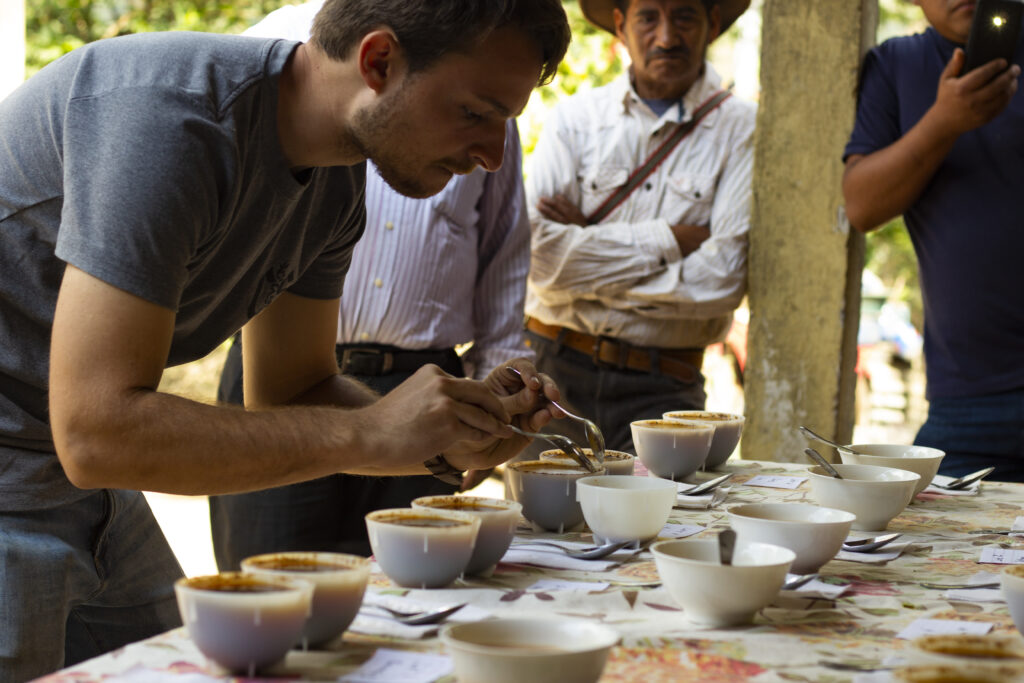
Who is someone that made a lasting impact on you? What words or actions have stuck with you?
“Officer Michelle S. This person has nothing to do with coffee, but she was a police officer at a police department I volunteered for back in my high school days. We had just pulled someone over for speeding 20+ over and I made a small comment about this person being a “bad” person. She stopped me and said something along the lines of just because people do bad things doesn’t mean they’re bad people.
That comment has stuck with me ever since and it’s helped me to recognize the difference between a person’s identity and their actions. When you believe there’s a difference between the two, it gives the potential for change and growth.”
As we’ve talked about, Yepocapa Coffee is dedicated to partnering with coffee farmers to produce quality coffee. You genuinely want their product value to continue increasing. Because of this you’ve incentivized the quality to help encourage greater success for them. Can you talk about the intentional process that was taken to turn around the market in the area, increase access, and instill hope into farmers again?
“Oh my, another great question. It all needed to start with trust. Realistically, Yepocapa Coffee started off as more of an idea than anything else. Farmers weren’t sure if it would be worth placing in the extra time and effort to produce better coffees if we couldn’t come through and see their coffees build relationships with roasters.
After successfully exporting, importing, and selling our first bags of coffee, more farmers decided to join on. Since then, intrinsic pride, relationships with roasters, and the overall prices they’ve been able to receive have all been contributing factors to La San Pedrana’s growth, their increasing quality coffee, and the pieces they’re able to provide for their members.
Now that there’s been historical evidence behind our relationship with La Cooperativa San Pedrana, there’s been more hope to know that the future of coffee farming might actually be a prosperous one. (All of this has now taken place over a period of 6 years though. Other factors like education have been super valuable as we’ve learned more about processing methods and making improvements to the wet mill.)”
What another great week hearing Ryan share his experience and perspective with us! Next week we will learn about transparent pricing, what inspires Ryan to be a refuge for others, and his concluding thoughts on how to be “Asulon” to others.
Be sure to join us again and follow Yepocapa Coffee on Facebook/Instagram @yepocapacoffee or on Twitter @Yepocapa_Coffee.
Edited by: Alida Cassinari, @hacassinari
Permission to use photos from Ryan Chipman with Yepocapa Coffee.
Photo credit: @devonbbarker & @eliscet & @marvin_a_c_s
